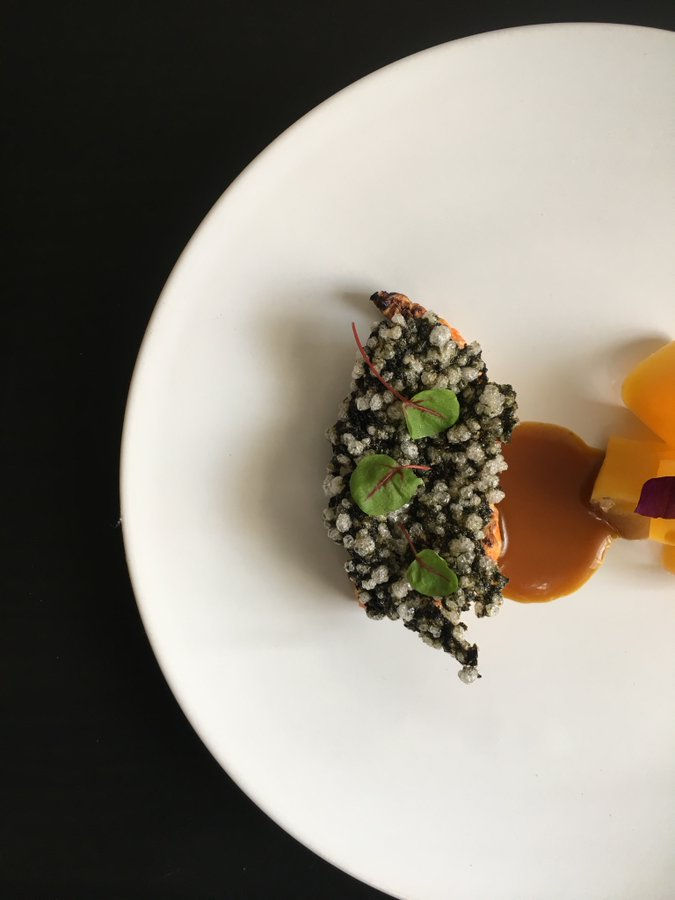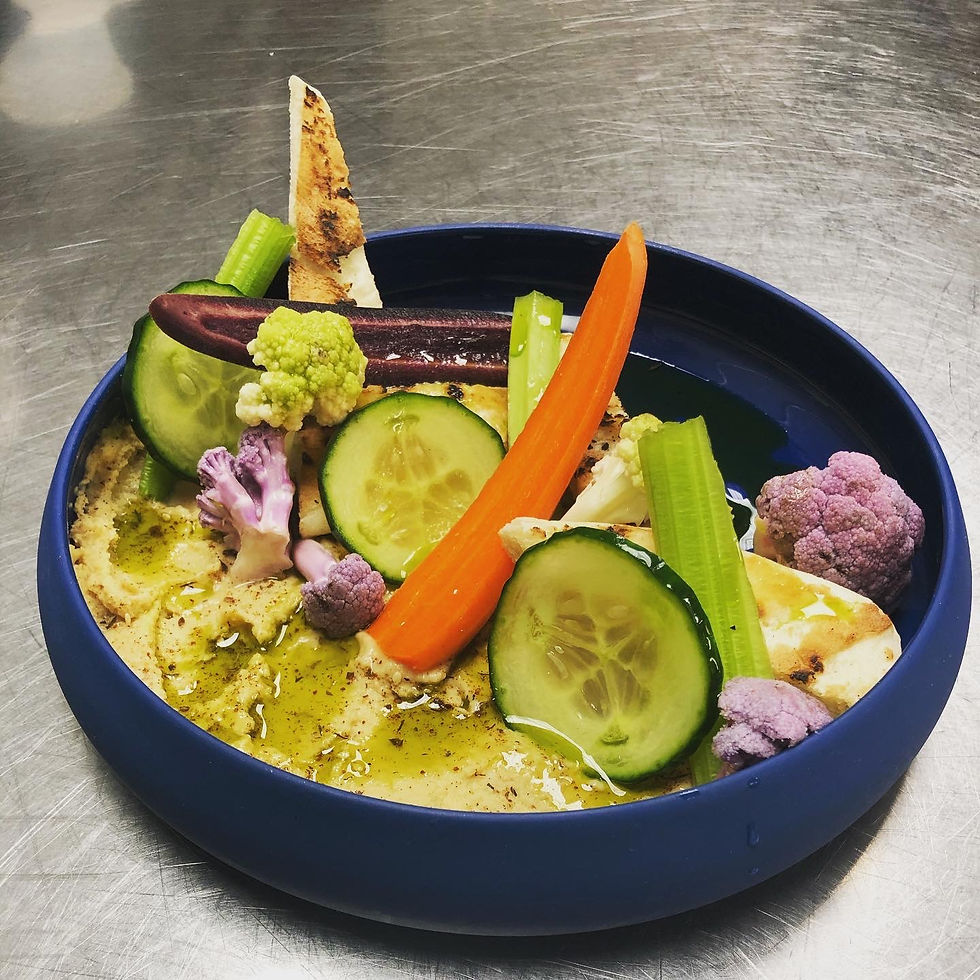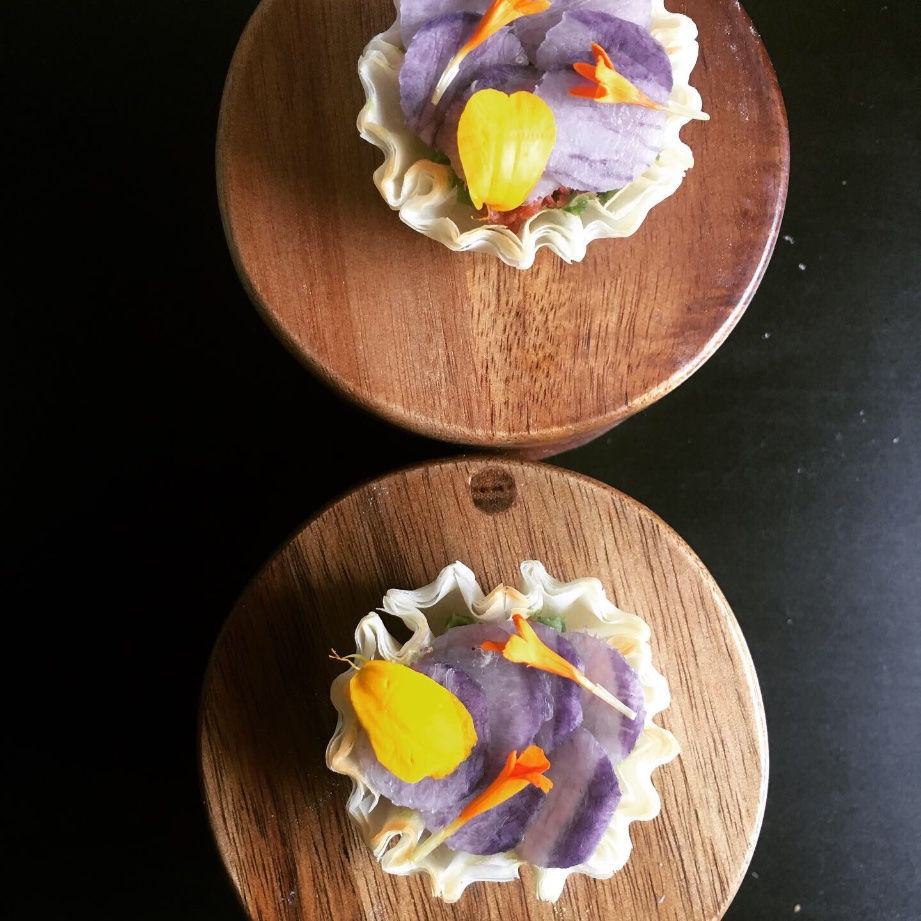The future of food
- joeyxyouth
- Oct 12, 2021
- 3 min read

These lobster mushrooms get cooked confit with seaweeds and avocado butter to have a snappy texture similar to lobster, then paired with shaved squash and a sauce that's basically a vegan fumet made with squash stock instead of water
I think one of the reasons I feel freer when cooking with plants is that, besides the fact that it's a choice i make, rather than me being forced to work with animal products at my day job, and that i get to actually truly taste and eat and enjoy the food myself, is that it feels like discovery. It feels like the future of food.
Many of us who are vegan have been saying for years, even decades, that animal agriculture isn't sustainable. The way we as Americans eat isn't sustainable. They way we produce and sell food even isn't sustainable. And more than any year in my memory, this past year has seen it all coming to pass, in ways that are scary and truly unfortunate. I see it with my own eyes as a chef, as someone who buys and produces food for a restaurant: There are many things we simply cannot get because they are not there to be had.
Some of it, yes, is the result of coronavirus. But some is the result of the environment. Shellfish prices having doubled this year, because waters are too warm for crabs and scallops to reproduce, so crab prices are up to $50 a pound because there aren't as many. A Seafood shortages occur across the board for many many different types, a full 1/5 drop in availability compared to last year. The effects of climate change, warming sea waters, over fishing, and bycatch are starting to show.

A crudite of vegetables from local farms
And not just seafood, but produce even. Unsustainable an unethical farming practices that degrade the environment and mistreat workers have led to a shortage of many commercial varieties of produce, so what we see right now is an ironic situation where the local small grower, organically grown and farmed produce that people like me love to use, is closer in price or even cheaper than conventional products (some of which you cannot even get because they're out of stock)
This summer I was almost in my own little heaven, ordering only the best: gem lettuce rather than commercial romaine, getting Jersey corn and tomatoes rather than conventional, getting amazing summer zucchinis, red peppers, and shelling beans from Pennsylvania farms. I would say for the first time since we re-launched the dining experience at my job, the vast majority of produce we used actually was local. It was a situation where it's cheaper to buy this random farmer's cranberry and wax beans from Lancaster than it was to buy string beans from California.
As restaurateurs, the decision to make in these changing times almost seems obvious: Menus and food that center around produce rather than meat, locality, and long term-sustainability. Not just because these vegetables genuinely just taste and look better, but it's a better price point. Why sell $40 a pound crab when you can buy green chickpeas for $4 a pound and create almost the same dish, with some creativity?

These tartlets for amuse bouche are meatless versions of a crab salad tartlet I did at an old job, using fava beans for the salad rather than crab, and flavoring it with kelp puree and nori
To me, the future is learning now how to use the ingredients we most certainly WILL have to use, the unsustainability of animal agriculture only continues to worsen.




留言